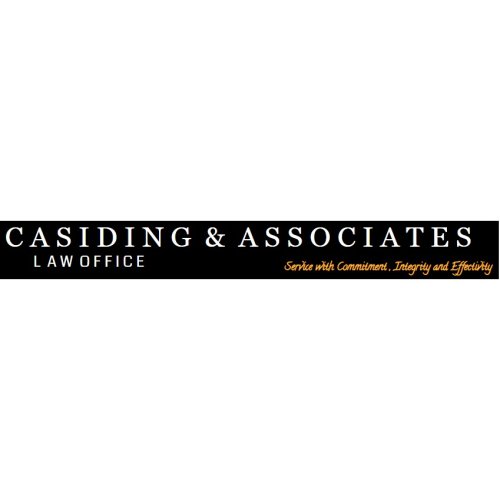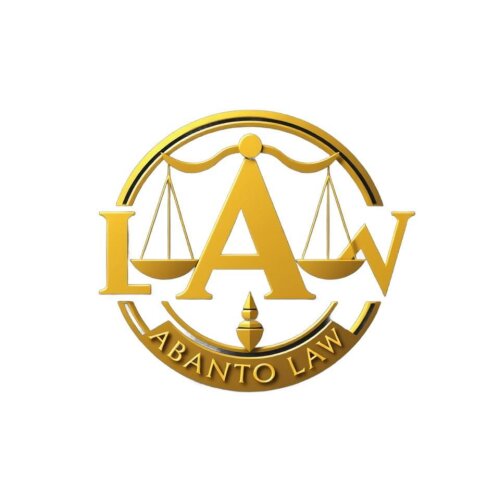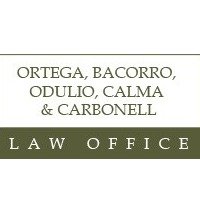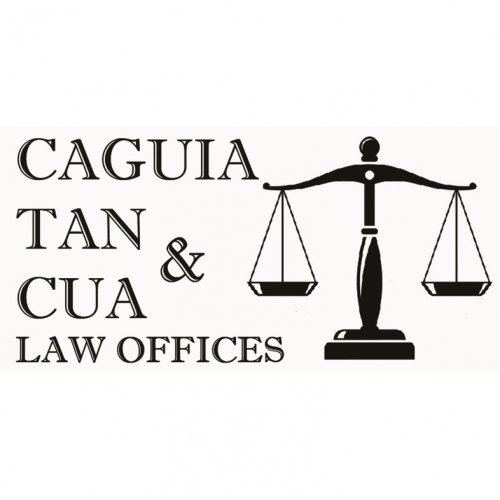Best Employer Lawyers in Makati City
Share your needs with us, get contacted by law firms.
Free. Takes 2 min.
List of the best lawyers in Makati City, Philippines
About Employer Law in Makati City, Philippines
Makati City, known as the financial hub of the Philippines, is home to numerous corporations and businesses. The city's legal framework pertaining to employers is guided by national labor laws, as well as specific municipal ordinances. Employer law in Makati City involves rules and regulations that cover aspects such as hiring practices, wages, workplace safety, employee benefits, and termination procedures. The landscape is heavily regulated to ensure the rights of both employers and employees are respected, fostering a fair and conducive working environment.
Why You May Need a Lawyer
Engaging the services of a lawyer might become necessary for employers in several scenarios. Sometimes businesses might face complex situations that require expert navigation, such as disputes over employment contracts, allegations of unfair dismissal, or compliance with occupational health and safety regulations. Additionally, legal guidance is often needed when drafting employment contracts, ensuring adherence to the Department of Labor and Employment (DOLE) standards, handling labor disputes, or mediating in conflicts between employees and management. Having a lawyer assist in these matters can help protect the business from legal repercussions and maintain smooth operations.
Local Laws Overview
The key aspects of local laws in Makati City relevant to employers include adherence to the Philippine Labor Code, which governs topics such as minimum wage, overtime pay, and the conditions of work, including working hours and rest days. Employers must also comply with various health and safety regulations to ensure the workplace is safe for employees. Moreover, the implementation of policies against discrimination and harassment is mandated to promote equality and respect within the workplace. Data privacy laws ser also crucial, requiring employers to properly manage and protect employee information.
Frequently Asked Questions
What are the minimum wage requirements in Makati City?
The minimum wage in Makati City follows the rates set by the National Wages and Productivity Commission (NWPC), subject to periodic adjustments. Complying with these rates is crucial for employers to avoid legal penalties.
Is it mandatory for employers to provide health benefits?
Yes, employers are generally required to provide health benefits, including contributions to the Philippine Health Insurance Corporation (PhilHealth), the Social Security System (SSS), and the Home Development Mutual Fund (Pag-IBIG Fund).
What constitutes wrongful termination?
Wrongful termination occurs when an employee is dismissed without just or authorized cause as specified under the Philippine Labor Code. Legal counsel can help determine if a case of wrongful termination can be claimed.
Can an employer conduct background checks on potential employees?
Yes, employers can conduct background checks; however, they must comply with the Data Privacy Act concerning the collection and processing of personal information.
What are the working hour standards in Makati City?
The standard workweek is typically 48 hours, with eight hours a day, six days a week, unless otherwise stated in the employment contract or collective bargaining agreement.
Are employees entitled to severance pay?
Severance pay is generally due in cases of authorized causes for termination, such as redundancy or retrenchment, as defined by law.
How can employers address workplace harassment?
Employers must establish internal policies to prevent, address, and resolve instances of workplace harassment, in compliance with existing laws on Women's Protection and Safe Spaces Act.
What is required for compliance with occupational safety?
Compliance involves adhering to standards set by DOLE, conducting regular safety audits, and providing necessary training to employees to mitigate workplace hazards.
How are disputes with employees typically resolved?
Disputes are often resolved through mediation, arbitration, or through proceedings at the National Labor Relations Commission (NLRC) as a last resort.
What are the consequences of non-compliance with labor laws?
Non-compliance can result in fines, penalties, or lawsuits, which can negatively impact the company financially and reputationally.
Additional Resources
Individuals seeking more information can reach out to governmental bodies such as:
The Department of Labor and Employment (DOLE), which provides extensive guidelines and support on labor laws.
The National Labor Relations Commission (NLRC) for dispute settlement procedures.
The Makati City government official website for local ordinances that might affect employment practices.
Next Steps
If legal assistance is required, it is advisable to consult with a lawyer specializing in employment law. Gather all relevant documentation and outline the situation clearly during your initial consultation to ensure a comprehensive understanding. Seeking out law firms or independent legal practitioners in Makati City with expertise in employer law can provide tailored advice and representation if necessary. Being proactive and informed will significantly contribute to favorable outcomes in legal matters.
Lawzana helps you find the best lawyers and law firms in Makati City through a curated and pre-screened list of qualified legal professionals. Our platform offers rankings and detailed profiles of attorneys and law firms, allowing you to compare based on practice areas, including Employer, experience, and client feedback.
Each profile includes a description of the firm's areas of practice, client reviews, team members and partners, year of establishment, spoken languages, office locations, contact information, social media presence, and any published articles or resources. Most firms on our platform speak English and are experienced in both local and international legal matters.
Get a quote from top-rated law firms in Makati City, Philippines — quickly, securely, and without unnecessary hassle.
Disclaimer:
The information provided on this page is for general informational purposes only and does not constitute legal advice. While we strive to ensure the accuracy and relevance of the content, legal information may change over time, and interpretations of the law can vary. You should always consult with a qualified legal professional for advice specific to your situation.
We disclaim all liability for actions taken or not taken based on the content of this page. If you believe any information is incorrect or outdated, please contact us, and we will review and update it where appropriate.
















